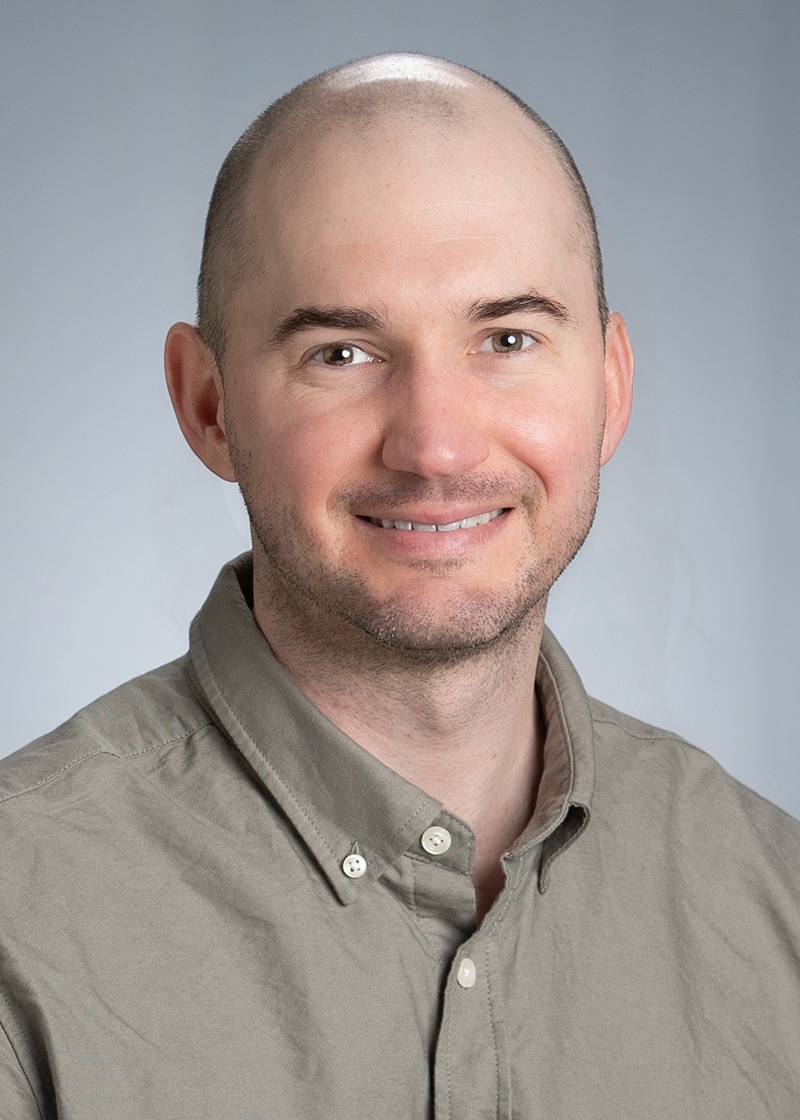August 2025
August 2025: Hugh Roland, PhD hbroland@uab.eduAssistant Professor, Health Policy and OrganizationWhat brought you to the UAB School of Public Health?
I joined the UAB School of Public Health as a postdoctoral student to work on tribally led climate change adaptation strategies. Since coming to UAB, I’ve found collaborators I greatly enjoy working with and a broadly interdisciplinary community that is extremely valuable to my cross-cutting research. I’m now part of the school’s Climate and Health Initiative, and this group’s diverse interests encourage me to think beyond my social science training and appreciate the varied approaches needed to address climate impacts on health.
What is the broad focus of your research?
My research examines social and structural drivers of climate change-related health vulnerabilities, particularly spatial differences related to different historical contexts. I also examine community-led adaptation strategies, particularly individual and community agency in accessing strategies. For example, I might consider barriers that communities face in implementing strategies and how they overcome these barriers. I'm also interested in environmental migration, particularly the extent to which moves are compelled or constrained, as well as impacts of out-migration on the health and climate resilience of individuals in sending communities. For example, in rural communities and communities that may rely more heavily on local foods, how might out-migration of working aged adults affect food access, diets and health?
Where did you receive your training and degrees?
I have a PhD from the University of Wisconsin-Madison, where I received training in environmental sociology and demography. I received my postdoctoral training at UAB through the Cancer Prevention and Control Training Program T32. I have an MA in History from the London School of Economics and a BA in Political Science from Northwestern University.
What is the most exciting project you are currently working on?
I am building new research to better understand how demographic shifts, and specifically out-migration and an aging population, may influence the disaster-related health vulnerabilities of older adults in rural communities. Most environmental migration research has focused on drivers of migration and on people who move, with much less attention given to impacts of out-migration on sending communities. In terms of disaster-related health vulnerabilities, out-migration and an aging population may reduce a community’s adaptation capacities by, for example, leading to fewer working-age adults to support disaster preparation and response activities. This research is highly significant as older adults, adults with chronic disease and rural residents are already disproportionately impacted by disaster shocks.
What is your favorite self-authored manuscript?
My favorite work examined contrasting drivers of vulnerability and resilience within the Marshall Islands. I found that vulnerability on rural outer islands was most tied to climate change impacts affecting natural resource-dependent livelihoods while vulnerability on urban Majuro was most tied to the cash economy and related economic precarity and social, cultural and dietary shifts. This was my favorite project because of the nuanced perspective on drivers of vulnerability in different contexts that my interviews with internal migrants revealed, including that, across contexts, perceived drivers largely reflected externally originating factors (e.g., increased integration into the global economic system, exposures to western cultures and impacts from climate change). I also enjoyed the chance to make friends in a new place and work with the International Organization for Migration and the Marshall Islands Conservation Society. I hope my research brings me back to the Marshall Islands.
What professional accomplishment are you most proud of so far in your career?
I am most proud of the clinical trial aim of an R01 that I supported during my postdoctoral program, working with the Sitka Tribe of Alaska to design and implement an education program in Southeast Alaska to increase knowledge of the traditional practice of shellfish harvesting, toxin exposure risks associated with consuming shellfish and an adaptation strategy organized by the Sitka Tribe to reduce risks of exposure. After other tribes in the region expressed interest in the education program, we worked with these tribes to expand programming to additional communities. Related work that aims to better understand climate and health-related risk perceptions and shifting traditional food practices and diets across the Gulf of Alaska continues through an expanded partnership (and P01) that also includes the Kodiak Area Native Association.
What is the coolest training or program you've been a part of, or your favorite conference you've attended?
This was a long time ago now, but the coolest program that I’ve been a part of was the AmeriCorps group Public Allies. The program introduced me to volunteers dedicated to improving their communities at a very local level. Through the program, I also had my first experience conducting qualitative research.
What kind of research would you like to be doing that you haven’t yet had the opportunity to do?
I would like to build more research collaborations with partners in the Deep South and internationally. I would like to expand my work in the Deep South as the region has received less attention in climate and health research (and because it is where I live and is important to me). I would like to expand my work internationally to better understand drivers of disaster-related health vulnerabilities in diverse contexts (and because I grew up outside of the U.S., and maintaining a global perspective is important to me).
If you had the funding to answer one research question what would that question be?
Related to my most exciting current project above: How do migration dynamics and shifting population structures influence disaster-related health vulnerabilities and important considerations for disaster management?
If you weren’t in academia, what would your career be?
I would be a musician. I started my undergraduate education as a vocal performance major in the Northwestern University School of Music. I miss music, especially being able to express myself through music.
